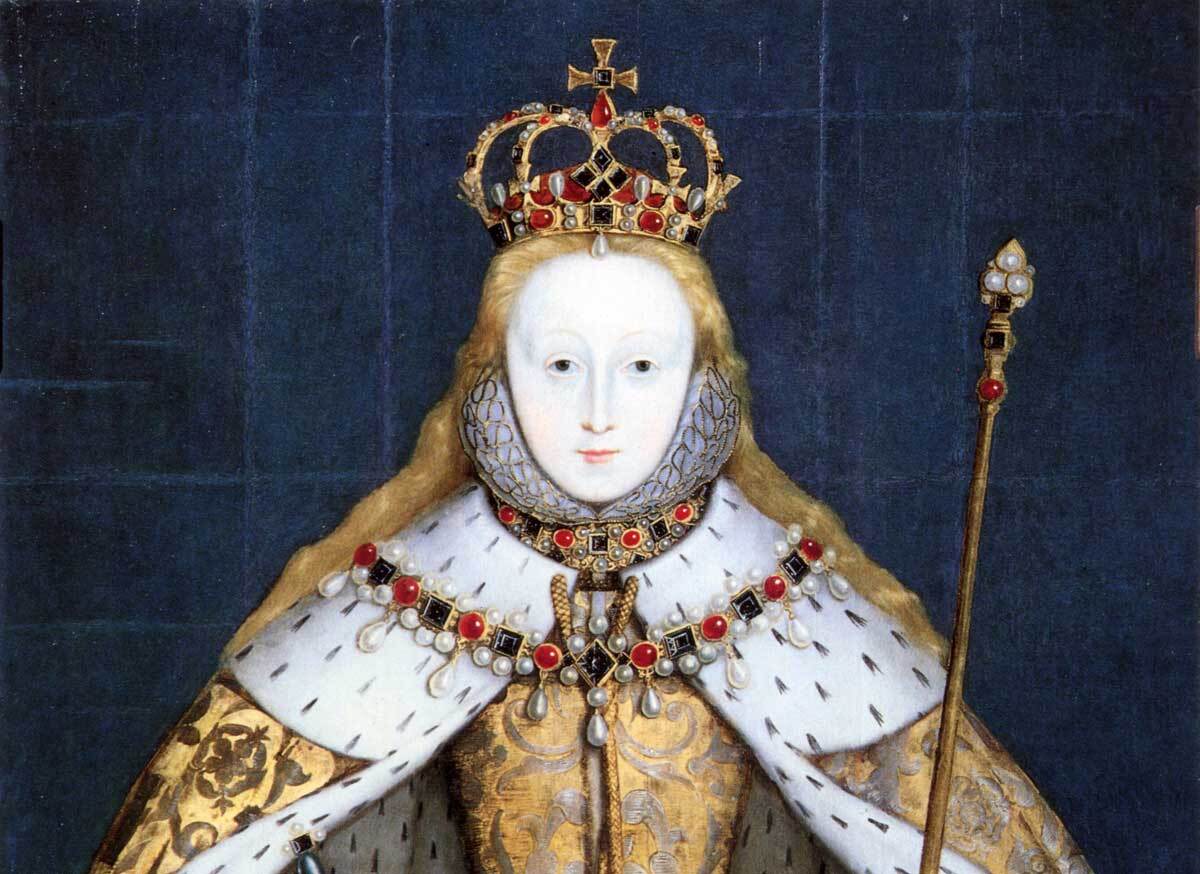
Queen Elizabeth I, one of history's most iconic monarchs, ruled England from 1558 to 1603. Her reign, known as the Elizabethan Era, marked a golden age of exploration, literature, and culture. But what made Elizabeth such a fascinating figure? She was a master of political strategy, a patron of the arts, and a symbol of strength and resilience. From her early life as a princess navigating treacherous court politics to her later years as a beloved queen, Elizabeth's story is filled with intrigue and drama. Ready to dive into some amazing facts about this remarkable ruler? Let's uncover the lesser-known details that make her legacy unforgettable.
Early Life and Ascension to the Throne
Queen Elizabeth I, one of the most iconic monarchs in history, had a fascinating life filled with intrigue, power struggles, and remarkable achievements. Let's dive into some captivating facts about her early life and rise to power.
-
Elizabeth was born on September 7, 1533, at Greenwich Palace. Her father was King Henry VIII, and her mother was Anne Boleyn.
-
Elizabeth's mother, Anne Boleyn, was executed when Elizabeth was just two years old. This left a significant impact on her early life.
-
Elizabeth was declared illegitimate after her mother's execution, but she was later reinstated in the line of succession.
-
She received an excellent education, studying subjects like history, languages, theology, and philosophy. Elizabeth was fluent in several languages, including Latin, French, and Italian.
-
Elizabeth became queen on November 17, 1558, after the death of her half-sister, Queen Mary I. Her ascension marked the beginning of the Elizabethan Era.
Reign and Achievements
Elizabeth's reign, known as the Elizabethan Era, was marked by significant achievements in various fields, including politics, culture, and exploration. Here are some noteworthy facts about her time as queen.
-
Elizabeth never married and was known as the "Virgin Queen." She used her single status as a political tool, maintaining control over her kingdom and avoiding foreign influence.
-
The Elizabethan Religious Settlement of 1559 established the Church of England's independence from the Roman Catholic Church, solidifying Protestantism in England.
-
Elizabeth's reign saw the defeat of the Spanish Armada in 1588, a significant military victory that boosted England's national pride and established it as a formidable naval power.
-
The Elizabethan Era was a golden age for English literature and drama. William Shakespeare, Christopher Marlowe, and other playwrights flourished during this time.
-
Elizabeth supported exploration and the expansion of English influence overseas. Sir Francis Drake and Sir Walter Raleigh were among the famous explorers of her reign.
Personal Traits and Interests
Elizabeth was known for her intelligence, wit, and strong personality. She had various interests and personal traits that made her a unique and memorable monarch.
-
Elizabeth was a skilled orator and often gave powerful speeches that inspired her subjects and rallied support for her policies.
-
She was known for her elaborate and fashionable wardrobe. Elizabeth used her clothing and appearance to project power and authority.
-
Elizabeth enjoyed music and was an accomplished musician. She played the lute and the virginals, a type of keyboard instrument.
-
She had a keen interest in science and often engaged with scholars and scientists of her time, including John Dee, an advisor and astrologer.
-
Elizabeth was a patron of the arts and supported various artists, musicians, and writers, contributing to the cultural flourishing of her era.
Challenges and Controversies
Despite her many achievements, Elizabeth's reign was not without challenges and controversies. Here are some intriguing facts about the difficulties she faced.
-
Elizabeth faced numerous plots and conspiracies against her life, including the famous Babington Plot of 1586, which aimed to assassinate her and place Mary, Queen of Scots, on the throne.
-
The question of her marriage and succession was a constant issue throughout her reign. Many foreign suitors sought her hand, but she remained unmarried.
-
Elizabeth's relationship with Mary, Queen of Scots, was fraught with tension. Mary was eventually executed in 1587 after being implicated in plots against Elizabeth.
-
The economic and social challenges of the time, including poverty and inflation, posed significant difficulties for Elizabeth's government.
-
Elizabeth's decision to execute her former favorite, Robert Devereux, the Earl of Essex, in 1601, was a controversial and emotional moment in her reign.
Legacy and Impact
Elizabeth's legacy continues to influence modern perceptions of monarchy and leadership. Her impact on English history and culture is profound and enduring.
-
Elizabeth's reign is often seen as a high point in English history, marked by stability, prosperity, and cultural achievements.
-
The Elizabethan Era laid the groundwork for England's future as a global power, setting the stage for the British Empire's expansion.
-
Elizabeth's image as the "Virgin Queen" and her use of symbolism and pageantry have left a lasting impression on the monarchy's public image.
-
Her support for the arts and literature helped shape the English Renaissance, leaving a rich cultural legacy that continues to be celebrated today.
-
Elizabeth's political acumen and ability to navigate complex challenges have made her a model of effective leadership and governance.
Fun and Lesser-Known Facts
Beyond her well-known achievements, Elizabeth's life was filled with interesting and lesser-known facts that add depth to her story.
-
Elizabeth had a sweet tooth and loved sugary treats. She even had her own royal confectioner to create elaborate desserts for her.
-
She had a pet dog named "Saucy," which she adored and often kept by her side.
-
Elizabeth was known for her sharp wit and often used humor to disarm her opponents and charm her courtiers.
-
She had a fear of mice and would reportedly scream if she saw one.
-
Elizabeth enjoyed hunting and often participated in hunts, showcasing her physical prowess and love for the outdoors.
-
She was a skilled horsewoman and frequently rode horses, both for leisure and as a display of her royal status.
-
Elizabeth had a collection of over 2,000 dresses, reflecting her love for fashion and her desire to project an image of majesty.
-
She was known for her elaborate and colorful makeup, which included a white lead-based foundation that was popular at the time.
-
Elizabeth's death on March 24, 1603, marked the end of the Tudor dynasty. She was succeeded by James VI of Scotland, who became James I of England, uniting the two crowns.
The Legacy of Queen Elizabeth I
Queen Elizabeth I's reign left an indelible mark on history. Her leadership during the Elizabethan Era saw the flourishing of arts, exploration, and literature. She navigated political challenges with a deft hand, maintaining stability in a time of religious and political upheaval. Her diplomatic skills and strategic marriages strengthened England's position on the global stage. Elizabeth's iconic image and unmarried status earned her the title of the "Virgin Queen," symbolizing purity and strength. Her influence extended beyond her lifetime, shaping the course of English history and culture. From her patronage of the arts to her military victories, Elizabeth I's legacy continues to inspire and captivate. Her reign remains a testament to the power of resilience, intelligence, and vision.
Was this page helpful?
Our commitment to delivering trustworthy and engaging content is at the heart of what we do. Each fact on our site is contributed by real users like you, bringing a wealth of diverse insights and information. To ensure the highest standards of accuracy and reliability, our dedicated editors meticulously review each submission. This process guarantees that the facts we share are not only fascinating but also credible. Trust in our commitment to quality and authenticity as you explore and learn with us.


